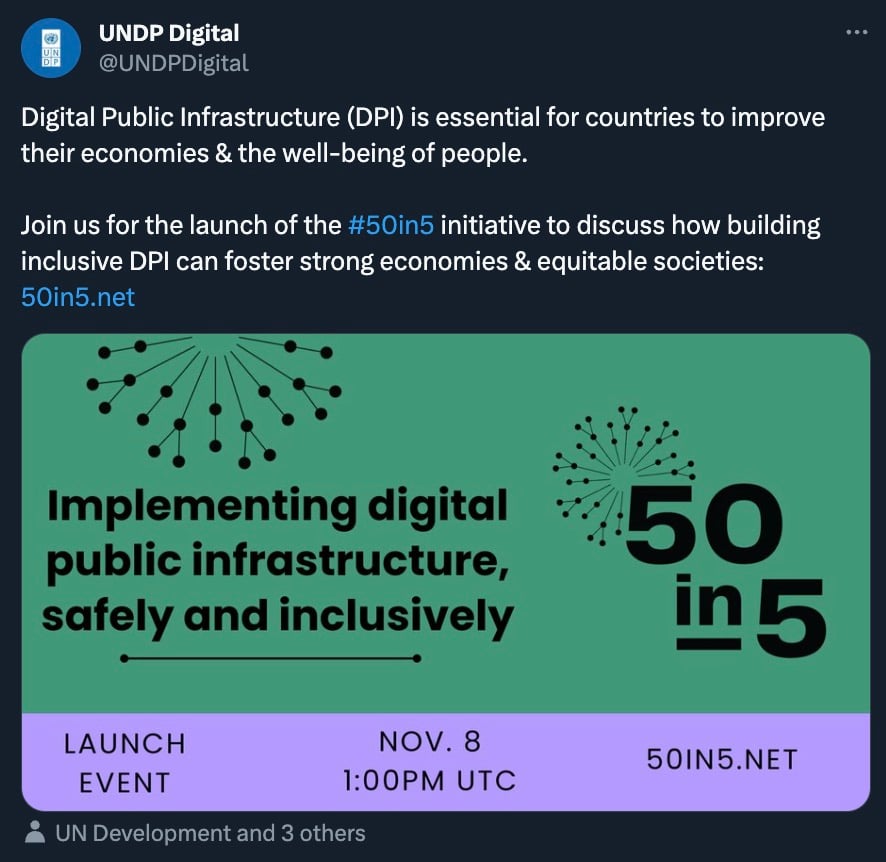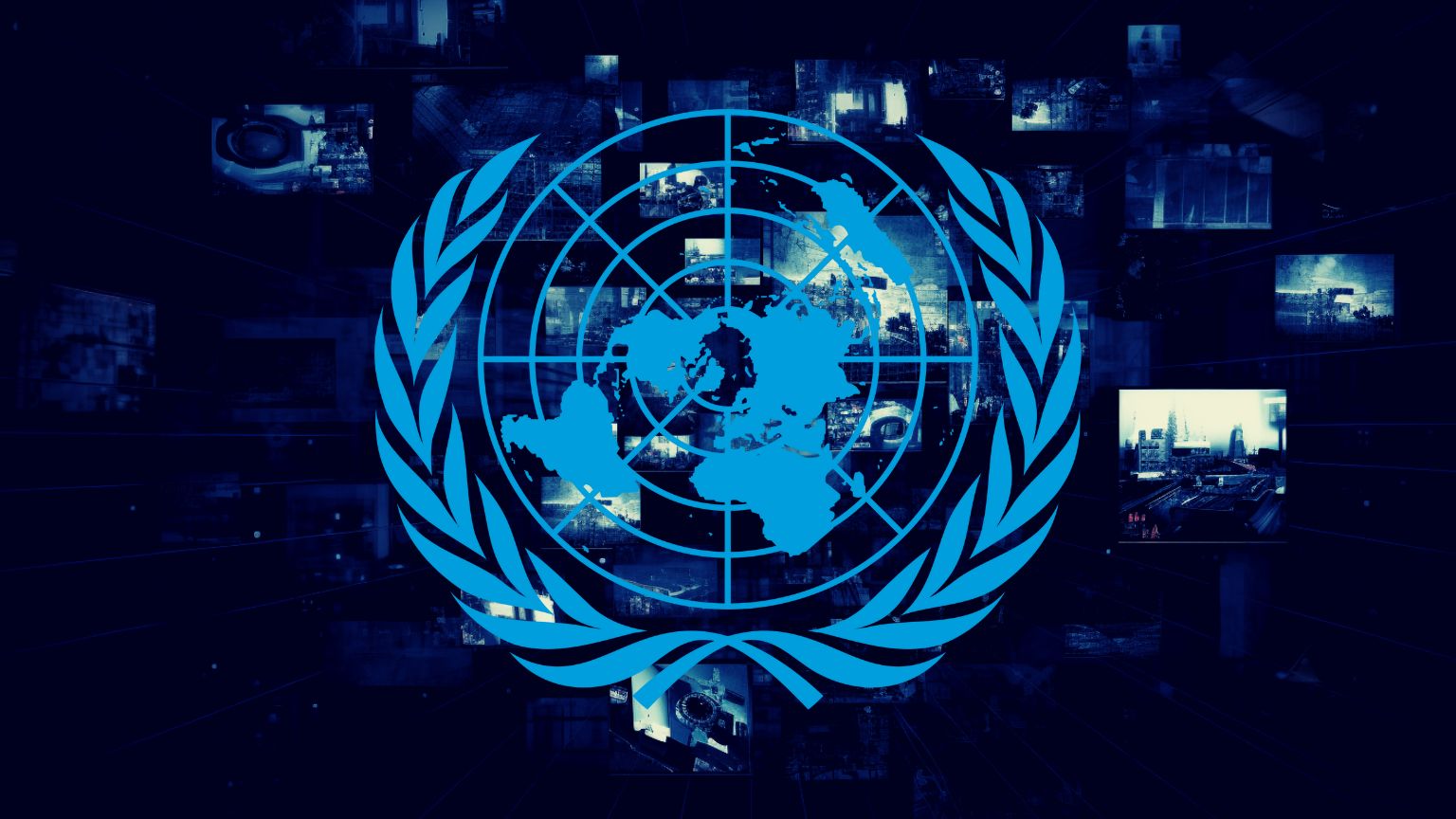The United Nations Development Program (UNDP) is launching a project based on what’s known as “digital public infrastructure,” aka, DPI.
And the overarching justification/explanation of these activities is reaching the UN’s sustainable development goals (SDGs).
What UNDP is supposed to be doing is pretty clear from its name, but what DPI itself is, is a buzzword used in somewhat interesting/alarming concord by organizations such as the UN, but also the European Union (EU), the Gates Foundation, and of course, the World Economic Forum (WEF) is never quite out of any such picture.

Reclaim Your Digital Freedom.
Get unfiltered coverage of surveillance, censorship, and the technology threatening your civil liberties.
What DPIs are supposed to do, in the best case scenario, is aid development in a number of ways. Those looking deeper into platitudes and “corporatespeak” coming from these organizations, however, are dismissing the term and the policy as a ruse to speed up introduction of digital IDs and payments, with a deadline of 2030.
November 8 is the date when the UNDP is implementing its “50in5” program, described as advancing “the conversation around the development of safe, inclusive and interoperable digital public infrastructure (DPI).”
Guess who’s there for the launch: The Bill and Melinda Gates Foundation. And why not – the group’s “Digital Public Goods Alliance and Co-Develop” has taken the center-stage of a lot of this effort.
If you’re a citizen of a UN member-state, and your government (i.e., taxpayers) are contributing to various UN efforts and, you feel either uneasy, or just insufficiently informed about all this (it could also be that any association with the Gates Foundation gives you proper Halloween-style goosebumps) – well, too bad. They’re going ahead anyway.
50 countries are designated as “guinea pigs” of sorts here, where the DPI in question will receive a concerned push from said entities.
These countries are what you might unfortunately easily assume they would be – those in Africa (sub-Saharan, particularly) and also, for some reason, still, India.
The Switzerland-based informal global elites’ mouthpiece WEF came out with a series of articles in September essentially pushing for DPI enforcement. The promise is “zero-knowledge tech” (in essence a cryptographic concept of verifying identity but also preserving privacy).
And of course, WEF is out there “thinking about the children” like the best of them.
“Children’s rights around the world can be boosted by investing in digital public infrastructures,” said one caption on the group’s website.




